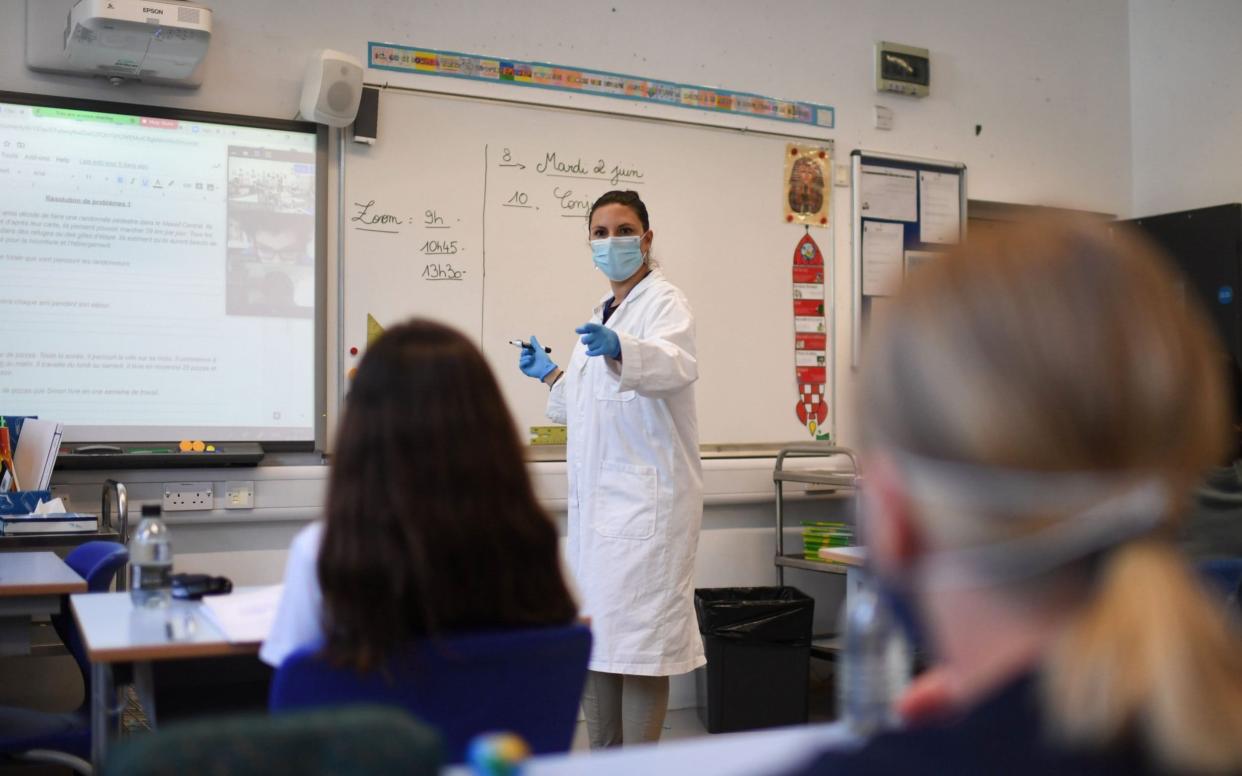Ofqual scales back GCSE courses to help pupils ahead of 2021 exams


Next summer’s GCSEs will be slimmed down with science experiments stopped, oral language exams cancelled and geography field trips scrapped, under plans revealed on Thursday.
Ofqual, the exams watchdog, has unveiled its proposals on how exams in 2021 will be altered, after students faced months of school closures during lockdown.
The watchdog’s plans include a scaled-back history GCSE exam, where pupils are required to study up to 15 per cent less of their course, and performance times will be halved in music exams.
The regulator has proposed delaying all exams until the start of June, meaning they would likely run into July and results days, usually in mid-August, may have to be pushed back. Usually all GCSEs, AS and A-levels are required to take place in May and June.
A series of sweeping changes to GCSEs proposed by the watchdog include:
Physics, biology and chemistry will have all experiments axed, and instead pupils will observe teachers doing the practical work
Geography will have all field trips cancelled, and questions on these removed from exam papers
History and ancient history will have a series of optional questions, meaning pupils can study up to 15 per cent less of the course
Modern foreign language exams will not have an oral component, which usually accounts for 25 per cent of the grade. Instead they will be given a "teacher endorsement" which will appear alongside their grade
Design and technology students will watch teachers demonstrate how to use equipment rather than using it themselves
Drama students watching and critiquing a recorded performance rather than a live one
Music students being examined on shorter performances
Dance students being examined based on two solo performances, rather than one solo and one quartet
Art and design students being assessed purely based on their portfolio, with their "task under timed conditions" section of the exam axed
Physical education students only being examined on solo pursuits, rather than group sports
It comes as the Government has released guidance on reopening schools in England to all pupils from September, which says schools will be expected to deliver their full curriculum ahead of exams in 2021.
But in "exceptional circumstances", Year 11 pupils could drop a GCSE subject so they can concentrate on getting good grades in English and maths.
Headteachers criticised Ofqual's plans for 2021 exams, claiming they "amount to little more than tinkering at the edges".
Geoff Barton, general secretary of the Association of School and College Leaders, said that postponing exams until the start of June only "adds up to a few weeks more learning time to compensate for a shutdown which has lasted for four months".
He added: "The young people who will take these exams have lost a huge chunk of face-to-face teaching time, and there is likely to be more disruption next academic year, with the possibility of localised full or partial closures in response to coronavirus outbreaks, and students who have to self-isolate.
"We understand that it is difficult to scale back exams in a way that is fair to all pupils, but we fear the very minor changes in this consultation fail to recognise the enormous pressure on schools and their pupils to cover the large amount of content in these courses."
Sally Collier, chief regulator of Ofqual, said that the watchdog considered a wide range of options before putting forward its proposals for exams next year.
She said their proposals will "help reduce the pressure on students and teachers, while allowing them to progress with valid qualifications which higher educational institutions and employers can trust."
Gavin Williamson, the Secretary of State for Education said: "The range of measures proposed by Ofqual, including the possible short delay to the exam timetable and subject-specific changes to reduce pressure on teaching time, will further ensure those young people taking exams next year have the same opportunities to progress as the students before them."

 Yahoo News
Yahoo News 
